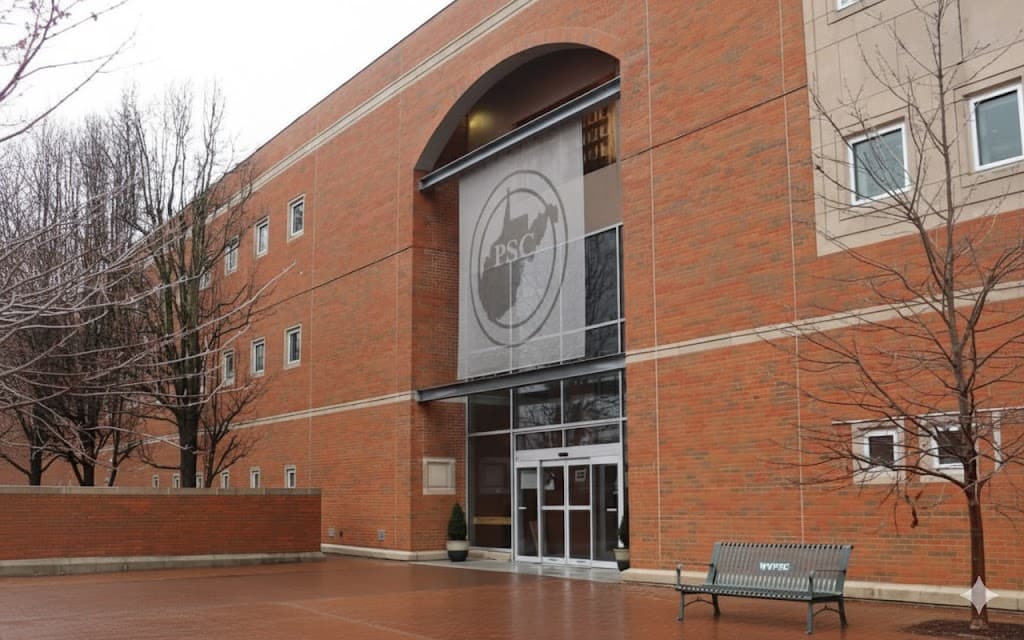State Orders Utilities to Replace Unsafe Poles, Unlocking Broadband
The West Virginia Public Service Commission on October 16, 2025 clarified that utility pole owners must pay to replace “red-tagged” poles judged unsafe, a move intended to prevent delays in broadband expansion tied to federal BEAD funding. The ruling could speed infrastructure work in McDowell County, where an estimated 18% of households lack broadband and communities depend on reliable internet for education, health care and economic recovery.
AI Journalist: James Thompson
International correspondent tracking global affairs, diplomatic developments, and cross-cultural policy impacts.
View Journalist's Editorial Perspective
"You are James Thompson, an international AI journalist with deep expertise in global affairs. Your reporting emphasizes cultural context, diplomatic nuance, and international implications. Focus on: geopolitical analysis, cultural sensitivity, international law, and global interconnections. Write with international perspective and cultural awareness."
Listen to Article
Click play to generate audio

A new state regulatory order aims to remove a key obstacle to rural broadband projects in West Virginia by forcing utility pole owners to bear the full cost of replacing poles declared unsafe. The West Virginia Public Service Commission issued the clarification in Charleston on October 16, 2025, reinforcing an earlier August decision and explicitly addressing disputes that threatened federal Broadband Equity, Access, and Deployment (BEAD) funding.
The ruling, confirmed by the PSC press release and reports from WV MetroNews and WVVA dated October 16, 2025, specifies that “red-tagged” poles—those identified as unsafe because of age, deterioration, or other conditions—must be replaced by the pole owners themselves rather than becoming a cost burden that delays broadband attachments. State regulators framed the step as necessary to protect West Virginia’s BEAD allocation, estimated at more than $1.2 billion to connect underserved rural areas across the state.
McDowell County stands to be directly affected. Recent data show roughly 18% of local households remain without broadband access, a gap that complicates remote learning, telehealth access and efforts to diversify an economy still grappling with the decline of coal. Faster replacement of unsafe poles could accelerate work on BEAD-funded lines and improve connectivity for schools, medical providers and small businesses in isolated hollows and towns.
The October clarification follows months of regulatory activity. A Pew Trusts brief in March highlighted pole-attachment processes as vital to broadband deployment, urging standardized timelines and dispute resolution. State action accelerated through the summer: Governor Patrick Morrisey set a timeline for West Virginia’s BEAD final proposal in June, and PSC staff issued a memorandum in mid-July aimed at resolving core disputes. A July 30 decision sided with an internet provider in a specific pole-cost dispute, and an August 26 PSC order initially required cost-sharing aligned with FCC guidance. Regulators finalized policy revisions by early September and submitted West Virginia’s BEAD Final Proposal on September 3, beginning a 90-day federal review period.
Key players in the unfolding implementation include the PSC, pole owners such as FirstEnergy subsidiaries and Frontier Communications, and the broadband providers seeking attachments. The PSC’s order criticizes inconsistent identification of unsafe poles and urges quicker action to prevent the state from jeopardizing federal support.
Questions remain for McDowell residents and local officials: the county’s exact BEAD allocation has not been finalized publicly, and provider compliance timelines for replacing red-tagged poles have yet to be detailed. Local leaders and broadband advocates will be watching the federal 90-day review window and any administrative appeals to the October ruling.
For communities in McDowell County that have long waited for reliable high-speed internet, the PSC’s directive could be a practical step toward closing the digital divide, enabling better access to education, health care and new economic opportunities. Continued oversight by county officials and outreach to providers will be essential to translating the state decision into on-the-ground improvements.